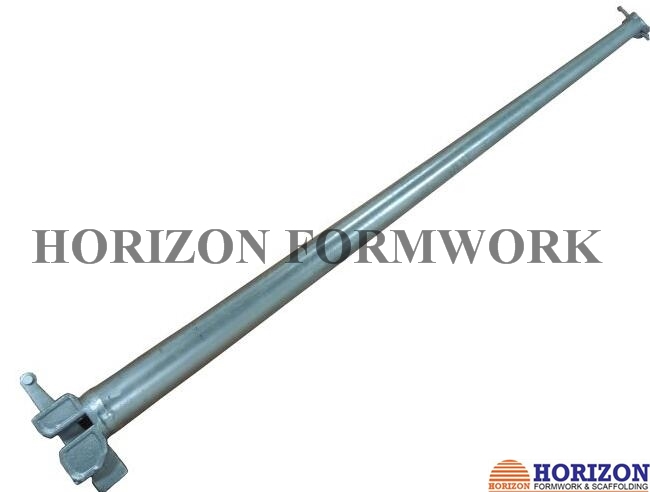Sep . 30, 2024 18:27 Back to list
Innovative Solutions for Concrete Column Formwork Systems and Construction Techniques
Exploring Concrete Column Formwork Systems A Comprehensive Guide
Concrete column formwork systems play a vital role in modern construction, providing the necessary support and shape to concrete structures during the curing process. As the demand for efficient and reliable construction techniques rises, formwork systems have evolved significantly, becoming integral to the success of various construction projects.
Understanding Formwork Systems
Formwork refers to the temporary or permanent molds used to shape and support concrete until it gains sufficient strength to support itself. Concrete column formwork systems specifically cater to the construction of vertical structures, such as columns, pillars, and posts. These systems not only ensure the correct shape and dimensions of the concrete elements but also enable construction efficiency and safety.
Types of Concrete Column Formwork Systems
1. Traditional Timbers Formwork Traditionally, timber formwork was the go-to option for constructing concrete columns. Wooden frames are assembled to create the desired shape, and while this method is flexible and customizable, it can be labor-intensive and time-consuming.
2. Steel Formwork Steel column formwork has gained popularity due to its durability and strength. It allows for the rapid assembly and disassembly of formwork, making it suitable for large-scale projects. Steel forms provide a smooth surface finish, reducing the need for extensive finishing work on the concrete itself.
3. Aluminum Formwork Aluminum formwork systems offer a lightweight alternative to traditional methods. They are easy to handle and transport, requiring less labor for setup. Aluminum also resists corrosion, which enhances its longevity and reduces maintenance costs. This type of formwork is particularly effective for repetitive construction tasks.
4. Modular Formwork Modular systems consist of prefabricated panels that can be combined to create various column shapes and sizes. They provide flexibility and adaptability, allowing for quick adjustments based on project specifications. Modular formwork is ideal for projects with multiple columns because of its reusability and efficiency.
concrete column formwork systems company

Benefits of Concrete Column Formwork Systems
The utilization of advanced concrete column formwork systems offers several advantages
- Cost-Efficiency By investing in high-quality formwork systems, construction companies can save significantly on labor costs and time. Faster assembly and disassembly lead to quicker project timelines, which can translate into financial savings.
- Enhanced Safety Reliable formwork systems provide the necessary support to workers and materials, reducing the risk of accidents on construction sites. Stable supports ensure that operations proceed smoothly and safely.
- Quality Control High-quality formwork systems result in well-shaped columns, minimizing defects in concrete structures. A consistent and smooth finish enhances the overall aesthetic of the construction, thereby increasing its value.
- Environmental Impact Many modern formwork systems are designed for reuse. This sustainability not only reduces waste but also lowers the demand for new materials, making it an environmentally friendly option.
Choosing the Right Formwork System
Selecting the most appropriate concrete column formwork system depends on various factors, including project scale, budget, and specific design requirements. It is crucial to work with reliable suppliers and manufacturers who offer a range of formwork solutions. These companies can provide guidance on selecting the correct materials and techniques that align with the project's needs.
In conclusion, concrete column formwork systems are pivotal to achieving high-quality structures in a timely and cost-effective manner. As construction technology continues to advance, investing in innovative formwork solutions will undoubtedly enhance construction efficiency and project success. By choosing the right systems and continuously improving methodologies, builders can revolutionize the construction industry, paving the way for the development of safer and more durable concrete structures. Whether through traditional methods or modern modular systems, the future of concrete formwork remains bright, with ongoing advancements promising even greater efficiency and reliability in construction practices.
-
High-Quality U Head Jack Scaffolding – Reliable Scaffolding Jack Head Manufacturer & Factory
NewsJul.08,2025
-
High-Quality I Beam H20 Leading Timber Beam H20 Material Factory, Exporters & Manufacturers
NewsJul.08,2025
-
High-Quality Powder Coating Steel Formwork - Durable & Corrosion Resistant Solutions
NewsJul.07,2025
-
Inclined Column Formwork Supplier – Durable & Precise Solutions for Unique Structures
NewsJul.07,2025
-
High-Quality Water Stop Solutions Trusted Water Stop Company & Suppliers
NewsJul.07,2025
-
High-Quality Formwork Material Supplier Reliable Manufacturer & Factory Solutions
NewsJul.06,2025